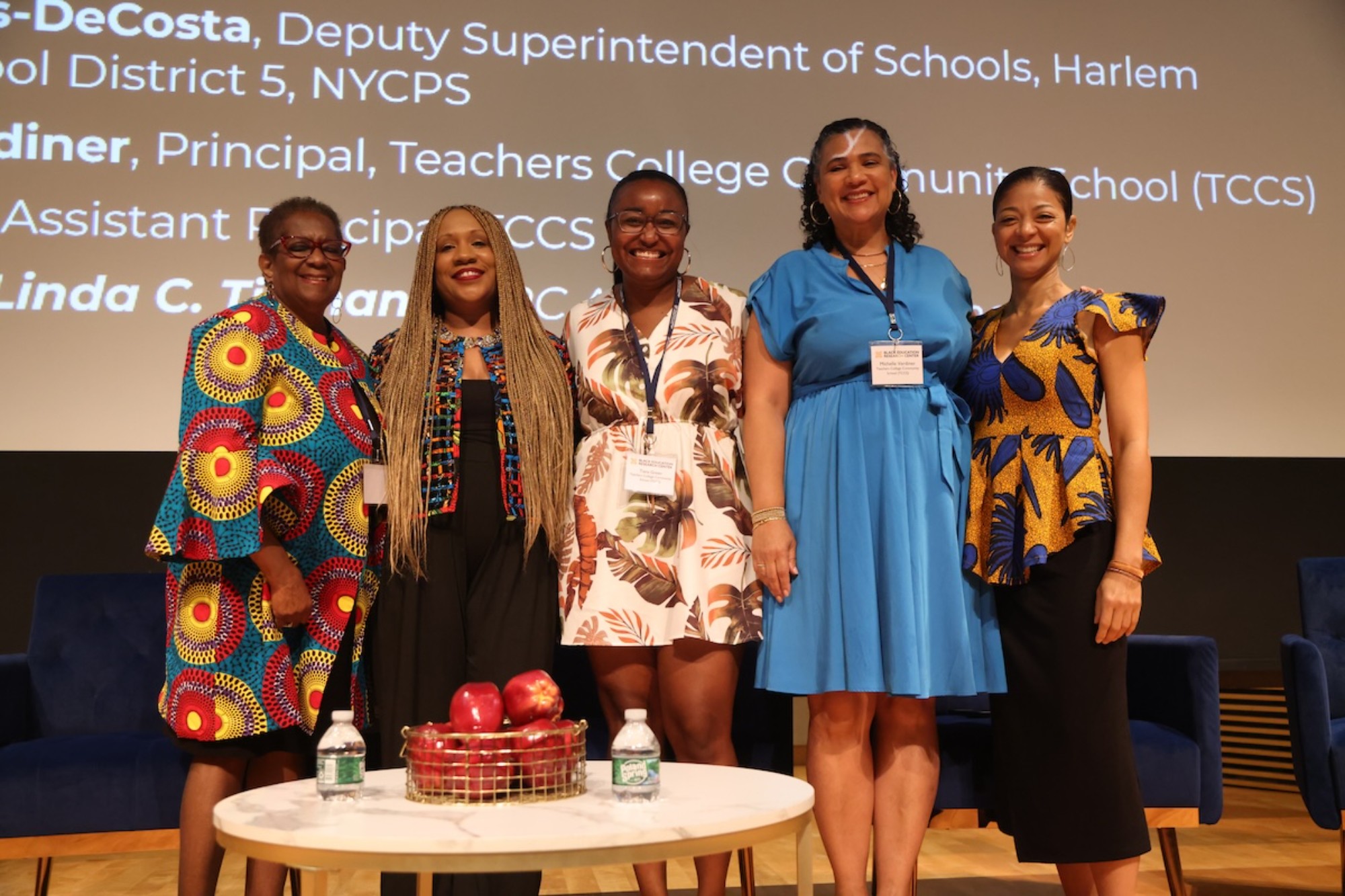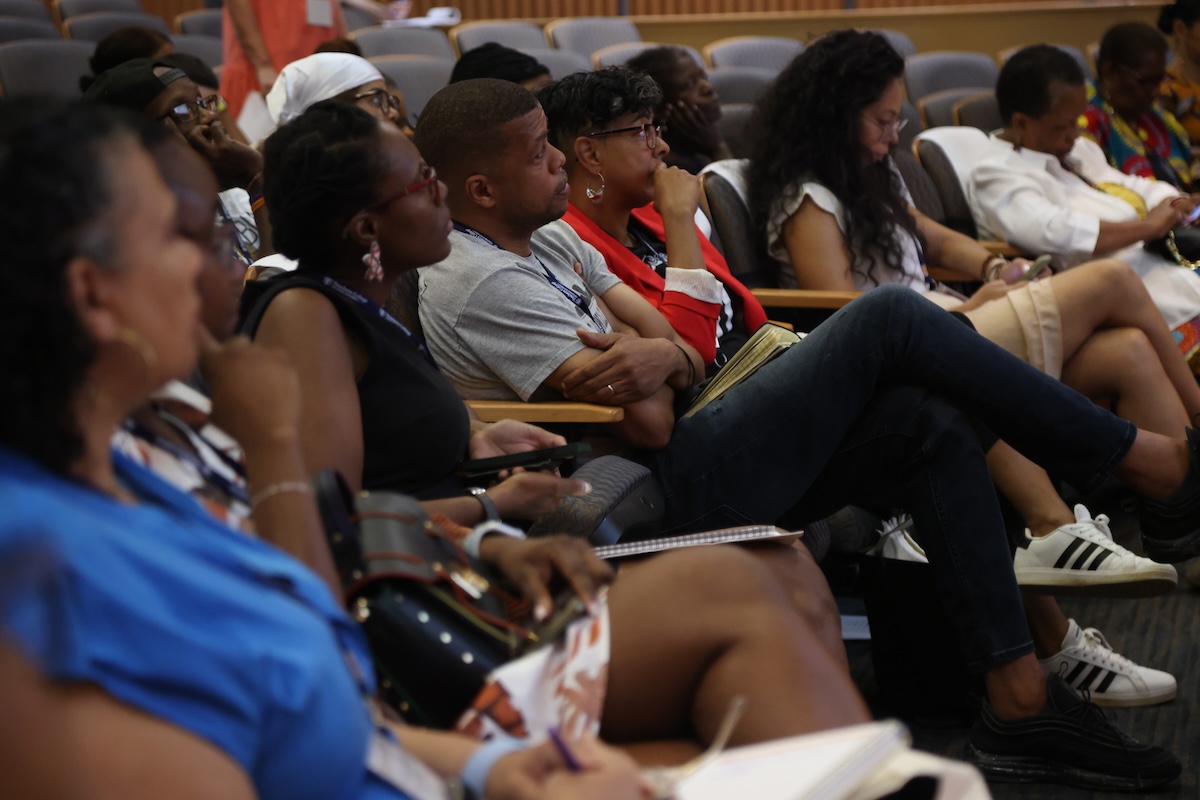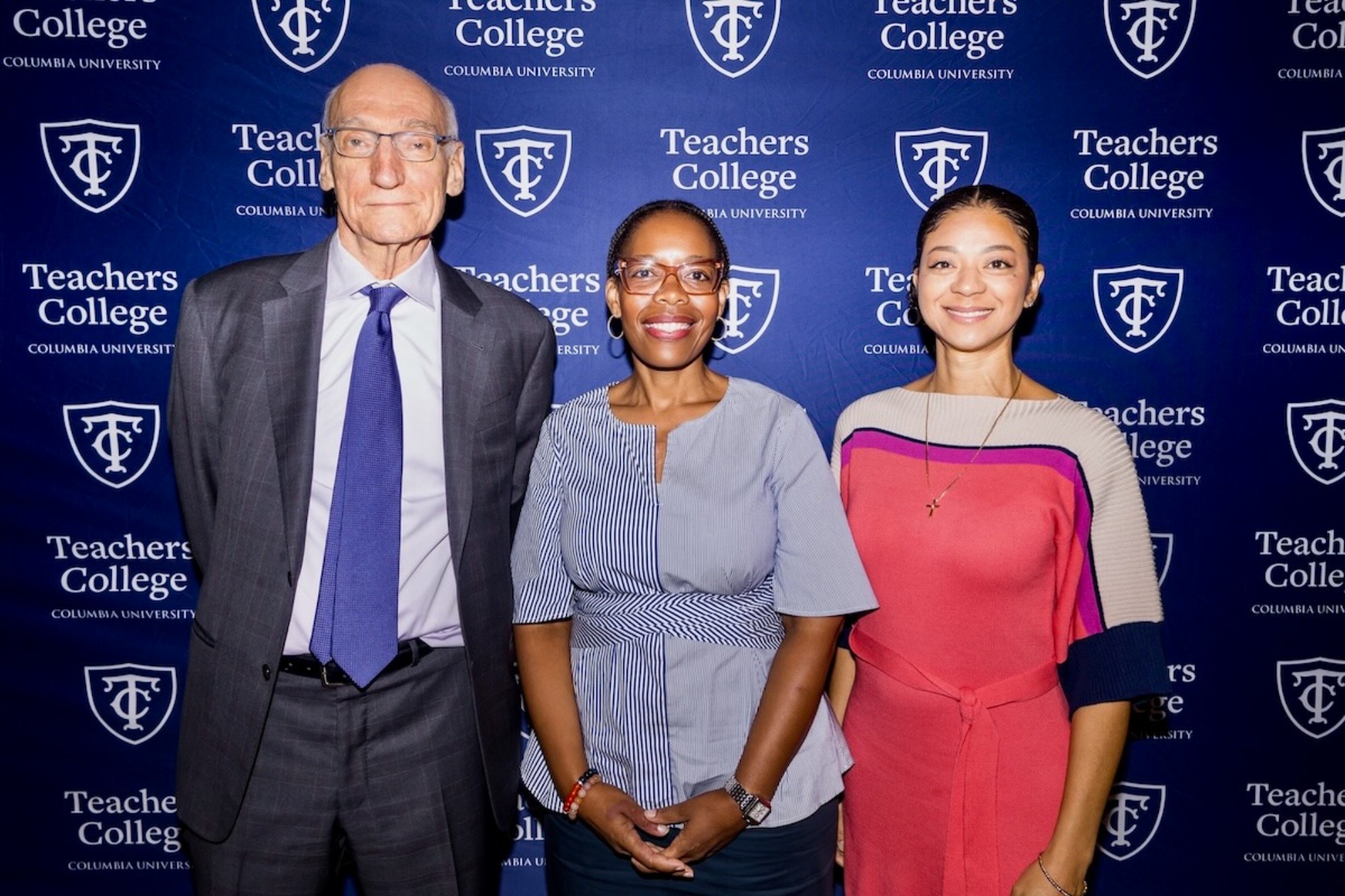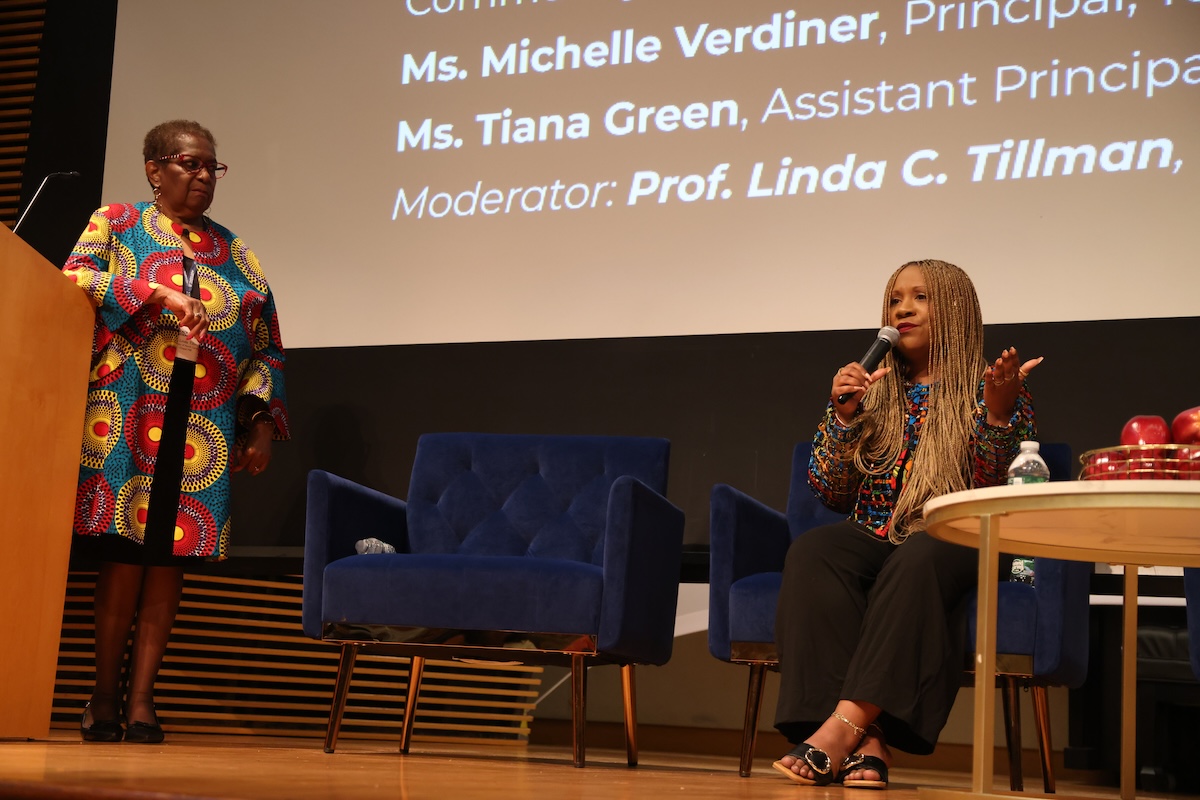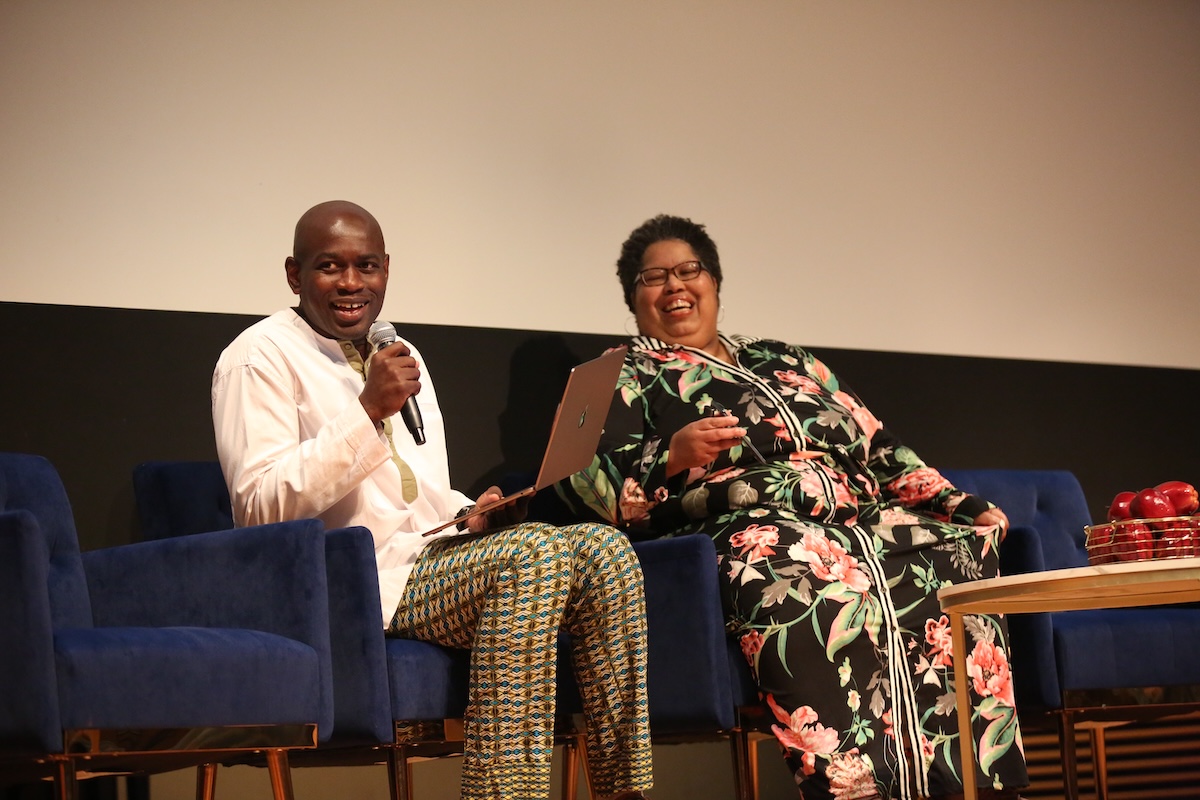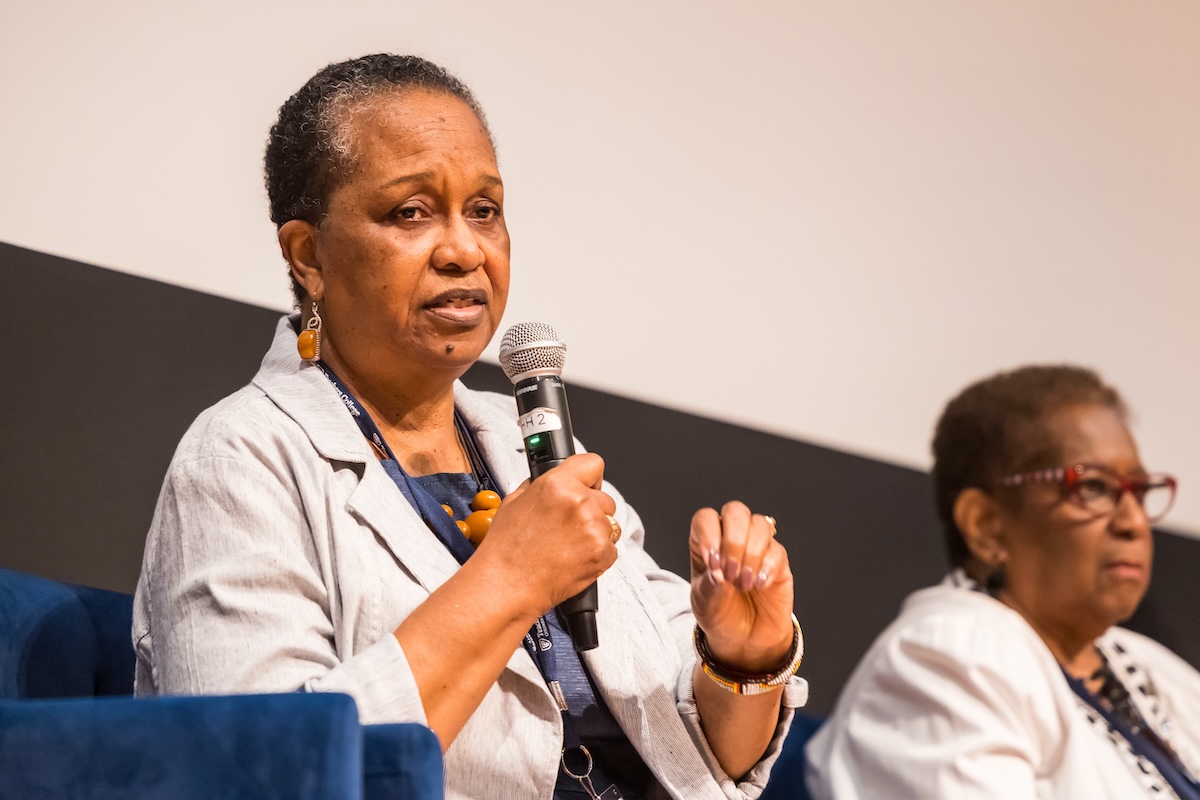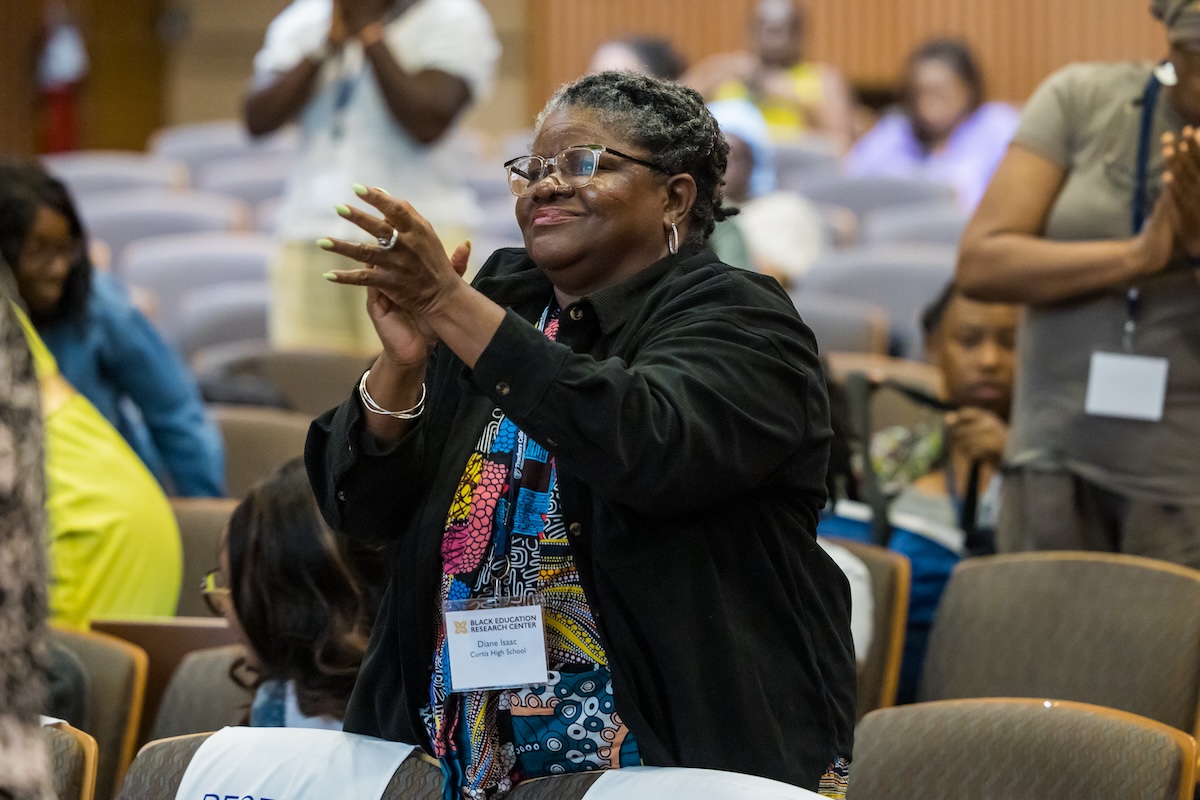After three years of development, including a year of piloting in 120 classrooms across all five boroughs of New York City, TC’s Black Education Research Center (BERC) debuted a new curriculum Black Studies as the Study of the World: A PK-12 Black Studies Curriculum for New York City Public Schools during the Center’s inaugural summer professional development conference on July 19. The curriculum — now available on NYC Schools WeTeachNYC platform — includes more than 100 in-depth lessons for grades PK-12 designed to expand all students' knowledge of the history of the African diaspora, as well as explore the long-lasting effects of racial inequity, all while meeting New York State Learning Standards for Social Studies and Next Generation Learning Standards for English Language Arts, History, and Social Studies.
The curriculum was developed through collaborative efforts involving BERC, the New York City Council, the Education Equity Action Plan (EEAP) initiative, a group comprising educators, nonprofits, government leaders, and New York City Public Schools.
“This curriculum reflects decades of scholarly research, community organizing, policy advocacy and leadership,” said Sonya Douglass, Professor of Education Leadership and founding director of BERC. “It is now essential that the curriculum is available and accessible to as many New York City schools and students as possible.”
BERC received $8.35 million dollars through EEAP initiative from the New York City Council to develop the Black Studies Curriculum for the city’s public schools and provide professional learning for teachers. It is the largest single grant Teachers College has ever received from the Council and played an instrumental part in the research and development that went into the curriculum. The landmark three-year EEAP initiative was launched by the New York City Council in 2021. Besides BERC, the initiative includes the United Way of NYC, the Association of Black Educators of New York (ABENY), Black Edfluencers United (BE-U), and the Eagle Academy Foundation.
“As children are being denied opportunities to see themselves in their curriculum and to gain a more complex understanding of their country’s history and current-day society, [teachers] all are on the front lines and leading us forward,” said President Thomas Bailey in his welcoming remarks. “Teachers College is so proud to be a part of this historic and groundbreaking initiative that builds on our historic legacy. . .We commend the leadership of the New York City Council, New York City Public Schools, and our Education Equity Action Plan (EEAP) initiative partners for their support and collaboration in bringing this exciting curriculum to life.”
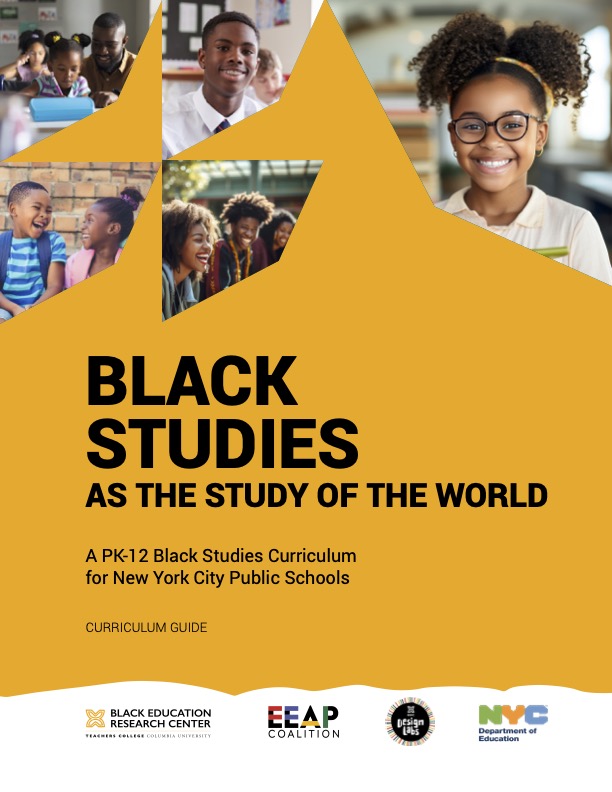
While Black Studies as the Study of the World was designed with NYC standards and students in mind, the curriculum is open source and accessible to any interested party.
Explore the full curriculum guide here.
While earning Continuing Teacher and Leader Education (CTLE) credits, educators and administrators spent the weekend immersed in the curriculum, with programming such as panel discussions with Black studies scholars and pilot program participants, in-depth explorations of the curriculum — such as thematic overviews and hands-on implementation workshops — as well as networking opportunities.
Community input and intentional design make the Black Studies Curriculum unique
One particularly stand out element of the thoughtfully-designed curriculum guide is the inclusion of teacher notes. Recognizing that some teachers may be learning new content alongside their students, the notes identify the knowledge necessary to teach the lesson in an inclusive manner. “We were developing the lessons to speak to the needs we know teachers have, in terms of content knowledge and instructional strategies,” said Deirdre Hollman, Senior Curriculum Specialist at BERC.
Recognizing that Black voices are often excluded from conversations about educational improvements, BERC facilitated a survey of Black voter opinions on education in NYC, including offering a Black Studies curriculum, to ensure their voices were uplifted. Furthermore, after receiving feedback from pilot program teachers, developers refined the curriculum to ensure it meets the needs of all stakeholders. The result is a “rare” curriculum that integrates Black studies into core subjects and is “intentionally rooted in the creation of positive and affirming stories and narratives for historically marginalized groups,” according to reviewers of the curriculum.
In addition to comprehensive overviews and detailed lesson plans, the 520-page guide also provides lesson accommodations and modifications for students with disabilities and English language learners, culturally-responsive reading recommendations, and a robust resource directory.
Students are connecting with school in new ways
Early reactions to the curriculum demonstrate the broad excitement around Black studies. At the conference, Kamar Samuels, Superintendent for District 3 — which encompasses a portion of West Harlem, Morningside Heights and the Upper West Side — recalled a Harlem PS 180 student saying, “for the first time, I see myself and my brother in what we’re reading.” And regardless of grade level, background or location, teachers noted positive changes among students who experienced the curriculum.
“Students became more engaged and passionate about the subject matter,” said a Thurgood Marshall Academy high school English teacher who piloted the curriculum. “They connected historical events to contemporary issues, challenged stereotypes, and demonstrated a newfound empathy for marginalized communities.”
Meanwhile, District 5 Superintendent Sean Davenport noted a 6 percent increase in attendance for his students throughout the duration of the pilot program, which included all of the district’s schools. The boost may suggest a positive relationship between culturally-responsive curriculum and attendance.
However, TC recognizes that for these results to be sustainable, teachers will need consistent support. “BERC is committed to partner with educators to deliver the resources and training they need so that students everywhere receive the benefits of these groundbreaking lessons,” said Douglass.
The curriculum, which is available as open-source material for educators nationwide, is intended to be a national model for school districts across the country. Looking toward the future, BERC hopes to continue supporting teachers through the development of more lessons, with an emphasis on literacy instruction, more professional development opportunities and orientation workshops to onboard teachers who are new to the Black Studies curriculum.
